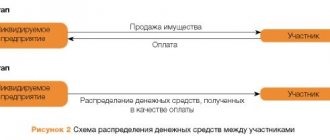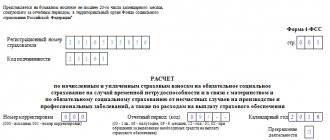Home — Articles
Calculation and payment of tax payments are the most important responsibility of any business entity. Timely fulfillment of this obligation allows the organization to optimize its tax burden and avoid additional financial losses in the form of penalties. However, a fairly common situation is when an organization, due to objective reasons, has arrears in tax payments . If the tax authorities forcefully collect the specified arrears, the taxpayer can protect his interests . Let's consider these possibilities.
Legal regulation
In accordance with Art. 23 of the Tax Code of the Russian Federation, taxpayers are obliged to pay legally established taxes. According to paragraph 1 of Art. 45 of the Tax Code of the Russian Federation, the taxpayer independently fulfills the obligation to pay tax, unless otherwise provided by the legislation on taxes and fees (hereinafter referred to as tax legislation). This obligation must be fulfilled within the period established by tax legislation. Article 11 of the Tax Code of the Russian Federation provides that arrears are the amount of a tax or fee not paid within the period established by tax legislation. It is formed if the taxpayer has not transferred the taxes due to the budget or has made a partial transfer. Control over taxpayer compliance with tax legislation is carried out by the tax authority through tax control measures, for example, desk and field tax audits (Article 87 of the Tax Code of the Russian Federation). Based on the results of consideration of the materials of the tax audit, during which violations of tax legislation were revealed, a decision is made to hold the taxpayer accountable, and measures are taken to enforce the taxpayer’s obligation to pay taxes. It is necessary to pay attention to the fact that if the taxpayer has not fulfilled his obligation to pay taxes voluntarily, then the tax authorities are obliged to collect the arrears forcibly (Article 39 of the Tax Code of the Russian Federation). Tax legislation provides for two methods of enforcing the obligation to pay taxes (fees), other obligatory payments and sanctions: indisputable (extrajudicial) and judicial procedures . Both procedures have procedural features.
Preparing a claim
Debt collection is one of the most common procedures. Citizens turn to lawyers when debtors refuse to voluntarily fulfill their obligations.
The only legal option for collecting a debt in court is to file a lawsuit.
You can submit the application yourself, but then difficulties often arise:
- incorrect preparation or execution of the document;
- presence of errors and typos;
- you should know which court to go to, and so on.
There are two options for determining the court, according to jurisdiction and belonging to a certain territory. In the first case, the specifics of the dispute are taken into account:
- civil;
- arbitration;
- world.
Jurisdiction for judicial debt collection in court depends on the address of the debtor or the collector, which is indicated in the contract.
Statement of claim
According to the general principle, drawing up a statement of claim for the return of a debt through the court is similar to drawing up a claim to the debtor.
The first side of the document.
Continuation of the form.
Any claim should include details and other important information in detail so that the court has an objective view of the conflicting parties.
Also, when drawing up an application, you need to describe in detail the essence of the case:
- the circumstances that led to the legal relationship;
- method of formalizing financial obligations;
- moment of occurrence of the violation;
- amount of debt;
- debt repayment terms;
- penalties;
- other important facts and terms of the contract.
Documents confirming the requirements are attached to the application for debt collection in court:
- a copy of the receipt of payment of the state duty;
- a receipt or agreement confirming the transfer of funds.
Documents are certified by signature or seal. It is best to leave the originals for presentation during the trial. Additional copies of documents during judicial debt collection are left for the Defendant. An application for debt collection through court must comply with the rules of procedural and substantive law. The help of a lawyer is important not only when drawing up a claim; his participation in the trial is of great importance for achieving the desired result.
Lawyer's work
Conventionally, debt collection in an arbitration court consists of three stages:
- pre-trial dispute resolution (negotiations with debtors regarding voluntary fulfillment of obligations);
- trial;
- execution of the decision.
After preparing documents confirming the debt and filing a statement of claim, a period begins during which the court considers the case. The trial is necessary to certify the debtor's obligations and formalize them.
The creditor may file a motion for security. Its execution is possible at the stage of consideration of the case or after the decision has been submitted for execution.
Undisputed procedure for collecting arrears
The moment of the beginning of this process should be considered the date the tax authority sent the taxpayer a request for payment of taxes . The requirement is a document of the established form containing a notification to the taxpayer about the unpaid amount of tax, as well as about the obligation to pay it within the specified period (Article 69 of the Tax Code of the Russian Federation). The request must also contain information about: - the amount of tax debt; — the amount of penalties accrued at the time the claim was sent; - the deadline for paying the tax established by the legislation on taxes and fees (This period is of great procedural importance, since it determines the deadline for the tax authority to make a decision to collect the arrears, as well as the deadline for the tax authority to file an application to the court to collect the arrears (Article 46 of the Tax Code of the Russian Federation )); — deadline for fulfilling the requirement (the requirement must be fulfilled within 8 working days from the date of its receipt, unless a different deadline is specified); — measures to collect tax and ensure the fulfillment of the obligation to pay tax, which are applied in the event of failure to comply with the requirement by the taxpayer.
The request must be sent to the taxpayer within 10 days from the date of entry into force of the audit decision (if the arrears were identified during a desk or field tax audit or within 3 months from the date of its discovery (if the arrears were not identified during a tax audit). In the latter In this case, the tax authority draws up a document identifying arrears from the taxpayer (the form of the document is approved by Order of the Federal Tax Service of Russia dated December 1, 2006 N SAE-3-19 / [email protected] ) The date of drawing up the specified document, from the point of view of the tax authorities, should be taken into account when determining period for issuing a claim. A similar opinion is expressed, in particular, in the Resolution of the Federal Antimonopoly Service of the North-Western District dated December 20, 2007 N A26-3314/2007. Note that this approach to determining the date of identification of arrears is at least not controversial. Arrears can only be identified after the taxpayer has submitted a declaration with the amount of tax due or has missed the deadline for paying the tax. The tax authority becomes aware that the tax has not been paid the next day after the deadline for payment.
Consequently, at the same time he learns about the amount of arrears. This position is also reflected in court decisions (see, for example, Resolution of the Federal Antimonopoly Service of the Volga-Vyatka District dated 08/06/2009 N A82-14902/2008-27). It is logical to assume that the discovery by the tax authority of data in its internal documents cannot indicate either the actual presence of arrears or the presence of overpayments, since such data completely depend on the actions of its employees, i.e. are subjective. In this situation, a taxpayer who has allowed arrears to arise can be recommended to reconcile settlements with the tax authorities. In this case, the date of the reconciliation report may indicate the timing of the discovery of the arrears. The current legal norms of tax legislation do not answer the question whether the deadline for sending a demand for tax payment is preemptive, i.e. whether the corresponding demand submitted in violation of the specified period is invalid. When resolving this issue, it is advisable to pay attention to the existing arbitration practice. The point of view of the judicial authorities is contained, for example, in the Resolution of the Plenum of the Supreme Arbitration Court of the Russian Federation dated June 22, 2006 N 25, as well as in the Information Letter of the Presidium of the Supreme Arbitration Court of the Russian Federation dated March 17, 2003 N 71 and is that violation of the deadline for issuing a claim does not entail a change in the deadline to an indisputable collection of arrears. Thus, the period for collecting arrears in case of violation of the deadline for issuing a claim will be calculated in the same way as if the claim had been submitted on time (Resolution of the Federal Antimonopoly Service of the Moscow District dated July 19, 2006 N KA-A40/6689-06-P). The requirement to pay tax can be submitted to the head of the organization (its legal or authorized representative) in person against signature, sent by registered mail or transmitted electronically via telecommunication channels. If the specified request is sent by registered mail, it is considered received after 6 days from the date of sending the registered letter. It is necessary to pay attention to the fact that when sending a request by registered mail, unpleasant situations for the taxpayer may arise. Thus, the demand can be sent to the legal address of the organization, and not to its actual location. In addition, the request may be received by an employee of the organization who is in the office at the time the correspondence is received, and does not inform the manager about it. In these cases, the organization's management may not be aware that the procedure for forced collection of arrears has begun. It is important to remember that the deadline for fulfilling the requirement is calculated from the date of its receipt by the organization, and not from the date of its preparation. The postal stamp on the envelope or the date indicated in the notification of delivery of a registered letter to the addressee will allow you to correctly determine the date of receipt of the request when sending it by mail. If an organization has not received a demand sent by mail, then in defending its rights, including in court, it has the right to demand from the tax authorities to prove the fact of mailing and the date of the specified mailing.
Inability to repay debt
Current legislation does not provide for additional punishment for debtors whose property lacks funds, property, or sources of income, or if the defendant is declared incompetent. The only option for collecting debts from such citizens is to reach retirement age with periodic payments from the state.
In this case, the plaintiff will be able to receive the monthly portion of the debt established by law. The applicant has the right to demand recovery from the disability pension to pay utility bills and fulfill loan obligations only in the event of loss of legal capacity by the debtor.
In addition to the above, it is important to understand what needs to be done if bailiffs are inactive and do not collect the debt from the debtor. Criminal liability is defined exclusively for non-payers of alimony, Art.
157 of the Criminal Code of the Russian Federation. If the bailiffs do not collect the debt under the writ of execution intentionally or in the form of inaction, the applicant has the right to file a complaint with higher management.
You can complain to the head of the joint venture or the prosecutor. Additionally, the plaintiff can challenge and demand a review of the decisions of the joint venture if violations are found in them or the rights and interests of an individual are affected.
For exceeding his authority, the bailiff may receive a fine and be removed from the case.
Collection of arrears at the expense of taxpayer funds
If the taxpayer has not repaid the arrears within the period specified in the request, then the tax authorities, within two months after the specified period, have the right to make a decision to collect the amount of the debt from the taxpayer’s bank account . Moreover, collection can be applied to funds located in the current account, even if these funds are received from the budget for specific purposes under government contracts (Resolution of the Presidium of the Supreme Arbitration Court of the Russian Federation dated November 17, 2009 N 8580/09). The judicial body, in support of its position, noted that, as a general rule, foreclosure on funds from the budgets of the budget system of the Russian Federation is not carried out. But in the case under consideration, the collection is carried out not at the expense of budgetary funds, but at the expense of the taxpayer’s own funds, which are funds received to the organization’s current account from the budget recipient. The decision on collection is brought to the attention of the taxpayer within 6 days after the decision is made. If it is impossible to deliver the decision on collection to the taxpayer against receipt or transfer it in another way indicating the date of its receipt, the decision on collection is sent by registered mail and is considered received after six days from the date of sending the registered letter. It is necessary to pay attention to the fact that a decision made after missing the specified period is invalid and, therefore, cannot be executed by employees of credit institutions. The tax authority's order to transfer tax amounts to the budget is sent to the bank in which the taxpayer's accounts are opened, and is subject to unconditional execution by the bank in the order established by the civil legislation of the Russian Federation. At the same time, the deadline for sending this order to the bank has not currently been established. In relation to situations that arose before September 2, 2010, the deadline for sending the specified order to the bank was equal to one month from the date of the decision to collect the arrears. Often, a decision to collect tax from funds in bank accounts is made by the tax authority before the expiration of the period specified in the request for tax payment. In this case, the rights of the organization are violated and funds that it planned to use to fulfill its obligations to counterparties may be debited from its account. The specified cash flow planning may take into account the deadline for payment of arrears specified in the requirement and not lead to a violation of the law. There is no uniform arbitration practice regarding the legality of such a decision of the tax authority. On the one hand, the decision is illegal, since the procedure for collecting arrears goes through several interrelated stages. For each stage, which has independent legal significance, tax legislation provides for a certain procedure and terms for the forced collection of taxes (penalties), failure to comply with which entails legal consequences in the form of declaring a non-normative act of the tax authority invalid (Resolution of the Federal Antimonopoly Service of the West Siberian District dated April 23, 2010 N A46 -21966/2009). On the other hand, the decision is legal, since tax legislation does not contain such a basis for unconditionally recognizing the decision to collect debt as illegal, such as failure to comply with the deadline for voluntary fulfillment of the requirement (Resolution of the Federal Antimonopoly Service of the Far Eastern District dated December 20, 2010 N F03-9322/2010). A relevant issue is related to the possibility of tax authorities issuing a repeated collection order , for example, if the taxpayer closes the account in the bank to which the collection order was sent and opens an account in another credit institution. Tax legislation does not regulate the issue of issuing a repeated order. An analysis of arbitration practice has shown that in most cases, judicial authorities recognize the right of tax authorities to these actions (Resolutions of the Federal Antimonopoly Service of the West Siberian District dated January 14, 2009 N F04-8140/2008(18774-A81-34), FAS Volga District dated December 25, 2008 N A65-10152/2008). The court indicated that the legislation does not contain a prohibition on issuing a repeated collection order. The opposite position is set out in the Resolution of the Federal Antimonopoly Service of the Central District dated October 25, 2010 N A09-3231/2010. The court found that the tax authority, after the bank returned the collection order in connection with the closure of the current account, issued a new order to write off funds from the taxpayer’s account in another bank. The court indicated that, having begun the procedure for indisputable collection, the tax authority is obliged to complete it, including making a decision to collect the tax at the expense of other property of the taxpayer. The bank's return of a collection order is not grounds for re-issuing a new order.
Potential obstacles
One of the most popular difficulties in the enforcement procedure is the search for the debtor and the property owned by him. Often the bailiff has to go a long way during operational search activities in relation to the defendant.
Many nuances and difficulties arise when seizing property. At the same time, the bailiff is obliged to limit collection on objects that are essential items, vital for the debtor and family members.
The period of validity of enforcement proceedings is limited to three years, after which the case is closed, and/or transferred to the plaintiff, who can initiate the procedure without taking into account the statute of limitations.
Collection of arrears at the expense of other property of the organization
If there are insufficient or absent funds in the taxpayer’s accounts, as well as in the absence of information about the taxpayer’s accounts, the tax authority has the right to collect tax at the expense of other property of the taxpayer. The specified recovery is carried out by decision of the head (deputy head) of the tax authority by sending, within three days from the date of such decision, the corresponding resolution to the bailiff (Article 47 of the Tax Code of the Russian Federation). Tax legislation does not contain legal norms obliging the tax authority to notify the taxpayer of the adoption of a decision and resolution regarding the collection of tax at the expense of property. The taxpayer will be notified by the bailiff after the initiation of enforcement proceedings. This point of view is confirmed in Resolution of the Plenum of the Supreme Arbitration Court of the Russian Federation dated June 22, 2006 N 25. The decision on collection must be made within one year after the expiration of the deadline for fulfilling the requirement to pay the tax. A decision made after the expiration of the specified period is considered invalid and cannot be executed. At the same time, the question remains unsettled as to whether the decision to collect tax from property has legal force if the inspectorate did not send the taxpayer a decision to collect tax from funds in bank accounts. If such a situation arises, the organization has the right to challenge the legality of the actions of the tax authority. The existing arbitration practice on this issue is ambiguous. In particular, in the Resolution of the Federal Antimonopoly Service of the West Siberian District dated March 16, 2009 N F04-1029/2009 (1032-A45-49), the court found a violation of the law in the actions of the tax authority. However, in the Resolution of the Federal Antimonopoly Service of the North Caucasus District dated July 31, 2008 N F08-4387/2008, the court determined that, subject to other requirements of tax legislation, this circumstance in itself cannot be a basis for canceling the decision to collect arrears at the expense of other property of the taxpayer. It is necessary to pay attention to the fact that the legality of the decision on collection is not made by the judicial authorities dependent on the following circumstances: - the tax authority did not revoke the previously issued collection order to repay the arrears at the expense of the organization’s funds in the bank (Resolution of the Presidium of the Supreme Arbitration Court of the Russian Federation dated July 19, 2005 N 853/05); - the taxpayer did not receive the decision of the tax authority sent to him on the collection of arrears at the expense of the organization’s funds in the bank (Resolution of the Federal Antimonopoly Service of the East Siberian District dated May 13, 2008 N A33-6337/07-03AP-1556/07-F02-1863/08). Enforcement actions must be carried out within two months from the date of receipt of the specified resolution. The obligation to pay tax is considered fulfilled from the moment the taxpayer’s property is sold and his debt to the budget is repaid.
BSC operation algorithm
The judicial system considers claims from individuals and companies regarding debts of third parties outstanding to them on a voluntary basis. If the existence of a debt is proven during the case, the court issues a ruling on the forced collection of funds from the defendant.
The court decision is sent to the SSP to implement the requirements. The bailiff (SP) has the right to take any measures within the framework of current legislation to comply with the court order.
Judicial procedure for collecting arrears
If the tax authority does not exercise the right to collect the arrears at the expense of the taxpayer’s funds out of court, then he has the right to file a claim in court to collect the said arrears (Article 46 of the Tax Code of the Russian Federation). At the same time, the tax legislation does not directly regulate the question of whether the tax authority has the right to apply for judicial protection with an application for the collection of tax amounts if it had previously made a timely decision to collect it. There is no official position on this issue. An analysis of arbitration practice allows us to conclude that the tax authority does not have the right to go to court, but must independently complete the procedure for indisputable collection, namely send a collection order to the bank, and also, if necessary, make a decision to collect the tax at the expense of other property of the taxpayer (Resolutions FAS of the West Siberian District dated 03/12/2010 N A45-10407/2009, FAS of the North-Western District dated 01/13/2009 N A05-6505/2008). The application can be filed with the court within 6 months after the expiration of the deadline for fulfilling the requirement to pay the tax. A deadline for filing an application missed for a valid reason may be reinstated by the court. Neither the Tax Code of the Russian Federation nor the Arbitration Procedure Code of the Russian Federation contain a list of valid reasons. Therefore, in each specific case, the court, analyzing the specific circumstances of the case, determines whether the relevant reason is valid.
Example 1. The reason for missing the deadline is a large amount of work and a lack of specialists at the tax authority. The court granted the request of the tax authority (Resolution of the Federal Antimonopoly Service of the North-Western District dated 05.02.2009 N A13-3227/2008). The court refused to satisfy the request of the tax authority (Resolution of the Federal Antimonopoly Service of the East Siberian District dated July 23, 2008 N A19-15231/07-F02-3485/08).
Example 2. The reason for missing the deadline is the tax authority reconciling settlements with the taxpayer. The court refused to satisfy the request of the tax authority (Resolution of the Federal Antimonopoly Service of the Far Eastern District dated March 12, 2009 N F03-717/2009).
In relation to arrears that are overdue for collection, two circumstances must be noted. Firstly, the tax authority does not have the right to charge a penalty . This point of view is contained in the Resolution of the Presidium of the Supreme Arbitration Court of the Russian Federation dated September 29, 2009 N 5838/09. In support of its opinion, the Supreme Arbitration Court of the Russian Federation noted that the fulfillment of the obligation to pay penalties cannot be considered in isolation from the fulfillment of the obligation to pay tax. Therefore, after the expiration of the deadline for collecting tax debt, a fine cannot serve as a way to ensure the fulfillment of the obligation to pay tax and is not accrued from that moment on. The Russian Ministry of Finance takes the same position on this issue (Letter dated October 29, 2008 N 03-02-07/2-192). Secondly, the tax authority does not have the right to offset any other tax paid in excess .
If the tax authority has missed the deadline for forced collection of arrears, then it is obliged, at the request of the organization, to return to it the overpayment incurred for another tax (Resolution of the Presidium of the Supreme Arbitration Court of the Russian Federation dated September 15, 2009 N 6544/09). If the tax authority does not exercise the right to collect the arrears at the expense of other property of the taxpayer out of court, then he has the right to file a claim in court to collect the said arrears (Article 47 of the Tax Code of the Russian Federation). The application may be filed with the court within two years from the date of expiration of the deadline for fulfilling the requirement to pay the tax.
Installment payment for debt repayment
Installment payment is the softest way to solve the problem of debt collection. Its essence is to repay the debt in installments over a period of time determined by the parties. As a rule, installment payment is formalized by a written agreement of the parties, which must indicate:
- Date of the agreement.
- Details of the parties.
- Total amount of debt.
- Amount of periodic payments.
- Deadlines, namely the date of repayment of all debts and the due dates of each payment.
- Signature of the parties.
This method is primarily beneficial to the obligated person, since it may not involve the payment of interest on the loan and penalties. However, for the creditor, the likelihood of repaying the debt increases significantly if the person obligated to return the funds has no intention of not fulfilling the terms of the agreement. In other words, it makes sense to use installment plans for debt collection only if the debtor is conscientious and solvency. You can learn about payment in installments under a court decision in this video:
Can bailiffs withhold part of a pension?
Debts can be paid from any pension:
- social;
- insurance;
- labor;
- on state support;
- cumulative.
Only the survivor's pension, state benefits, funeral benefits, and pensions for victims of radiation or man-made disasters remain untouchable. And also money allocated for medicines.
As for the amount of deduction, it depends on the amounts received. Typically the amount withheld is no more than 50%. But there are situations when the limit increases to 70%:
- The debtor injured his health.
- Committed a crime that resulted in a debt.
- Pays compensation to people who have lost their breadwinner.
Your pension account may be seized. The debtor is warned about this, so he must pay off the debt himself. If there is no reaction, a trial is held where the issue of account seizure is considered. If the decision is positive, the account will be frozen.
What difficulties arise when collecting debt from a legal entity - an overview of the main problems
The process of recovering legal debts is not a paved road to a bright future, but a bumpy road full of dangers.
To get to the finish line, you need to know about the problems that lie in wait for every potential debt recipient.
Problem 1. Hiding the real legal address
The company lives and operates at a fictitious legal address. It is impossible to track where her property is stored, or whether it exists at all.
Since concealing official data is illegal, it is advisable to involve law enforcement agencies in such situations.
Problem 2. Concealing information about the company’s management and its owners
The debtor conceals information about the owners of the company. This option is also possible - the company is quickly transferred to another person, but the real culprit turns out to have nothing to do with it.
There is a special term - “nominee”, that is, a person who voluntarily takes on the responsibilities of a general director or manager, but in fact acts as a figurehead, from whom, in general, there is nothing to ask.
The nominee always has the right to write a refusal, declare that he has nothing to do with the activities of the company, and in general - he has lost his passport and is not aware of what is happening.
Again, it’s impossible to sort out such situations without the police.
Problem 3. Launching the company liquidation procedure
The debtor manages to start the process of liquidating the enterprise, and collecting debts from a non-existent company, as mentioned above, is almost impossible.
Although some law firms take on such cases. They should be contacted in such cases.
Changes-2018
In conclusion, I would like to draw your attention to the fact that from June 1, 2021, changes to part one of the Tax Code adopted by Federal Law No. 343-FZ of November 27, 2021 “On Amendments to Parts One and Two of the Tax Code of the Russian Federation” come into force.
In particular, this law introduces changes to the procedure for forced collection. From June 1, 2021, when foreclosure is applied to a company’s current accounts, tax authorities will be able to send collections not only to ruble and foreign currency accounts (as was previously the case), but also to accounts in precious metals.
It is also clarified that the inspection can not only give instructions to the bank to sell currency (precious metals), but also at the same time instruct the bank to transfer the proceeds to the bank account of the debtor company.









